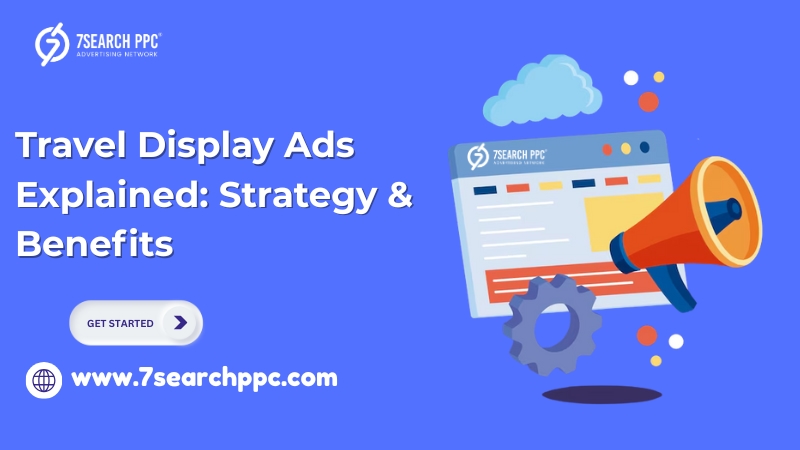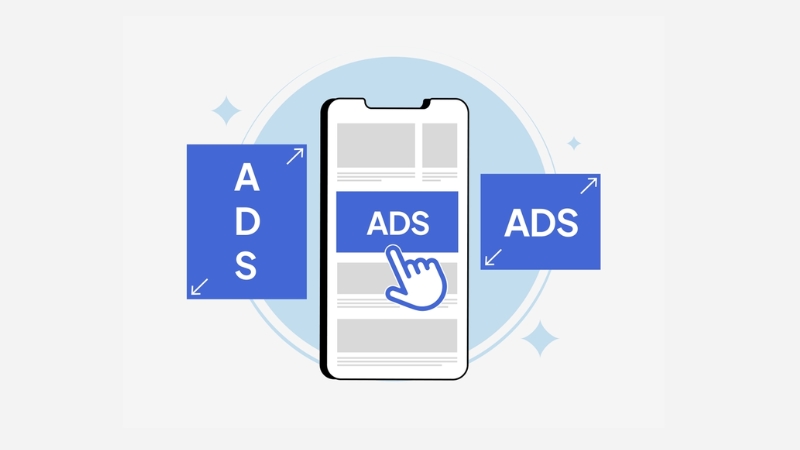In the competitive and ever-evolving travel industry, businesses need more than just a great product or service—they need visibility. One of the most effective ways to boost this visibility is through Travel Display Ads. These visually engaging ads appear across websites, apps, and platforms, targeting travelers at different stages of their journey. In this article, we’ll break down what travel display ads are, how they work, and why they should be a critical part of any travel marketer's strategy.

What Are Travel Display Ads?
Travel Display Ads are a type of online advertising that showcases visual creatives—images, banners, or videos—on third-party websites within a Travel Ads Network or broader ad platform. These ads are designed specifically for businesses within the travel industry, including airlines, hotels, tour operators, car rental companies, and travel booking platforms.
Unlike search ads, which rely on user intent through keywords, display ads focus on visual storytelling and audience targeting, offering a passive yet powerful way to attract travel-minded consumers.
The Strategy Behind Travel Display Ads
Understanding the Customer Journey
An effective travel advertising strategy aligns with the stages of the traveler’s decision-making process:
Inspiration Stage: Potential travelers browse destinations, blogs, and Instagram accounts for inspiration.
Planning Stage: Users compare flights, accommodations, and packages.
Booking Stage: The traveler is ready to commit to a purchase.
Post-Booking Engagement: Opportunities exist to upsell or provide value with itineraries and guides.
Travel Display Ads can be tailored to each of these stages using dynamic creatives and personalized content.
Creative Best Practices
Visual Appeal
Since display ads are visually driven, high-quality images or video clips are essential. Ads should evoke emotion, show the destination or experience clearly, and align with the brand’s tone.
Clear Call-to-Action (CTA)
Include a strong, action-oriented CTA such as “Book Now,” “Explore Deals,” or “Plan Your Trip.” The CTA must be relevant to the stage of the journey the customer is in.
Branding Consistency
Whether you're promoting a luxury resort or a budget airline, branding should be consistent across all your travel advertisement formats to build trust and recognition.
Targeting Capabilities of Travel Display Ads
One of the biggest advantages of using a travel advertising platform for display ads is the robust targeting options. These allow advertisers to reach the right audience at the right time with the right message.
Audience-Based Targeting
Demographics: Age, gender, income level
Location: Geo-targeting users based on their current or previous locations
Behavioral Data: Target users who have previously searched for or interacted with travel content
Contextual Targeting
With contextual targeting, your travel ads appear on web pages or content related to travel. For instance, ads for ski resorts may be placed on pages reviewing winter gear or mountain destinations.
Retargeting and Remarketing
Remarketing is essential in travel advertising. If a user visits your site but doesn’t convert, retargeting with personalized travel display ads can bring them back into the funnel with reminders, limited-time offers, or updated availability.
Benefits of Using a Travel Ads Network
Partnering with a travel ads network provides access to exclusive travel inventory and traveler-specific data. Here's how that benefits advertisers:
Wider Reach
Travel ad networks have relationships with travel-centric websites, blogs, and apps. This ensures your ads reach highly relevant audiences that are already in the mindset to book or explore.
Real-Time Optimization
With programmatic capabilities, many travel advertising platforms use AI and machine learning to deliver ads in real-time based on performance, maximizing ROI.
Cost-Effective
Compared to traditional travel advertisements such as print or TV, digital display ads offer more measurable results and flexible pricing models like CPM (Cost Per Mille), CPC (Cost Per Click), or CPA (Cost Per Acquisition).
Travel Display Ads vs. Other Types of Travel Advertising
Display vs. Search Ads
Search ads respond to specific queries (e.g., “cheap flights to Paris”), while display ads appear based on targeting criteria. Both are important, but display ads allow you to inspire before the intent is fully formed.
Display vs. Social Ads
Social media platforms offer great reach but often require more engagement to perform well. Travel display ads, on the other hand, run across a wide range of websites and apps and are generally better suited for brand awareness and retargeting.
How to Get Started with Travel Display Ads

Step 1: Choose the Right Travel Advertising Platform
Look for platforms that specialize in the travel industry. These platforms often provide tools to integrate inventory, manage bids, track conversions, and optimize campaigns for the best performance.
Popular platforms include:
7Search PPC – A cost-effective PPC advertising platform that supports travel display ads and allows advertisers to reach targeted audiences through budget-friendly campaigns, making it ideal for small to medium-sized travel businesses.
Expedia Group Media Solutions – Access to exclusive traveler intent data across Expedia sites.
Sojern – A programmatic platform that uses real-time traveler behavior to target ads.
Adara – Leverages travel data to deliver highly personalized advertising.
Criteo Travel – Retargeting-focused platform that specializes in converting high-intent travel shoppers.
Step 2: Define Campaign Objectives
What’s your goal?
Brand awareness
Lead generation
Direct bookings
Upselling services
Clearly defined goals will influence your targeting, creative, and bidding strategy.
Step 3: Develop Creative Assets
Invest in high-quality visuals, compelling copy, and A/B testing. Different messages may work better with different audience segments.
Step 4: Launch and Monitor
Once your travel display ads are live, monitor performance metrics like:
Impressions
Click-through rate (CTR)
Conversion rate
Return on ad spend (ROAS)
Use this data to adjust creatives, bids, and targeting as needed.
Case Study: Boosting Hotel Bookings with Travel Display Ads
A mid-sized hotel chain in Southeast Asia partnered with a travel advertising platform to increase direct bookings and reduce dependency on online travel agencies (OTAs). They used dynamic travel display ads targeting users who had searched for flights to their destination but hadn’t booked accommodations.
By using retargeting and seasonal offers, they saw:
35% increase in direct bookings
28% lower CPA compared to previous search ad campaigns
2.5x ROAS within two months
This case illustrates how effective targeting and messaging can significantly enhance performance in the travel space.
Conclusion
Travel Display Ads are a powerful, visual, and flexible tool for engaging today’s travelers across multiple touchpoints. Whether you’re in the inspiration or booking phase of the funnel, display ads can position your travel brand exactly where it needs to be—front and center.
By leveraging advanced targeting, working with the right travel ads network, and using compelling creative, travel marketers can unlock new levels of visibility, engagement, and revenue. As digital marketing continues to evolve, embracing the power of travel display ads isn’t just an option—it’s a necessity.
